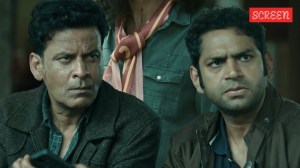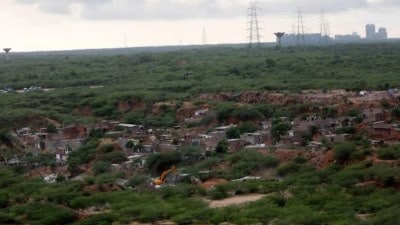Stay updated with the latest - Click here to follow us on Instagram
SC rejects a plea in Ram Janmabhoomi title suit
The SC dismissed the plea of an NGO to intervene in the Ram Janmabhoomi-Babri Masjid title suit.
The Supreme Court today dismissed the plea of an NGO to intervene in the Ram Janmabhoomi-Babri Masjid title suit.
Dismissing the petition of the NGO,Popular Front of India,a bench of justices Aftab Alam and R M Lodha,however agreed to hear the plea of another petitioner Mohammad Hasim who was one of the parties before the Allahabad High Court in the title dispute.
The bench tagged the petition with a bunch of other petitions filed by different parties against the September 30,2010,verdict of the High Court which ordered a three-way division of the disputed site in Ayodhya.
The apex court had on May 9 dubbed as strange the high courts verdict of three-way division of Ram Janmabhoomi-Babri Masjid site in Ayodhya and had stayed its operation saying none of the parties had demanded the partition of the land.
A new dimension was given by the high court as the decree of partition was not sought by the parties. It was not prayed by anyone. It has to be stayed. Its a strange order, the bench had said.
It expressed surprise over how the high court could pass such an order when it was not prayed by anyone.
While ordering status quo at the site,which means that prayers at Ram Lallas make-shift temple at the disputed site in Ayodhya would go on as usual,the court had restrained any kind of religious activity on the adjacent 67 acre land which had been taken over by the Centre.
All the parties to the suit had expressed satisfaction over the Supreme Courts May 9 order.
Counsel for various parties,including Lord Rama Lalla Virajman,Hindu Maha Sabha and Sunni Waqf Board,had expressed satisfaction over the apex courts interim order saying none of the parties had sought division of the 2.77 acre land.
The high court had directed that the controversial land of 2.77 acres at Ram Janmabhoomi-Babri Masjid be divided equally among Hindus,Muslims and Nirmohi Akhara,the parties to the suit.
Although the appeals filed by various Hindu and Muslim religious organisations pertained to only 2.77 acre of disputed land,the apex court bench,however,had ordered status quo on the 67 acre of land adjacent to the disputed site.
After the demolition of the mosque on December 6,1992,the demonstrators created a makeshift temple. On January 7,1993,the Congress government enacted the Ayodhya Act which preserved the status quo of the destroyed mosque and limited prayer at the disputed site.
The appeals have been filed by Nirmohi Akhara,Akhil Bharat Hindu Mahasabha,Jamait Ulama-I-Hind and Sunni Central Wakf Board,besides the one filed on behalf of Bhagwan Ram Virajman.
The Wakf Board and Jamait Ulama-I-Hind have submitted the high courts verdict should be quashed as it was based on faith and not on evidence. They have contended the court has committed an error by holding that the demolished Babri mosque had stood at Lord Rams birth place.







